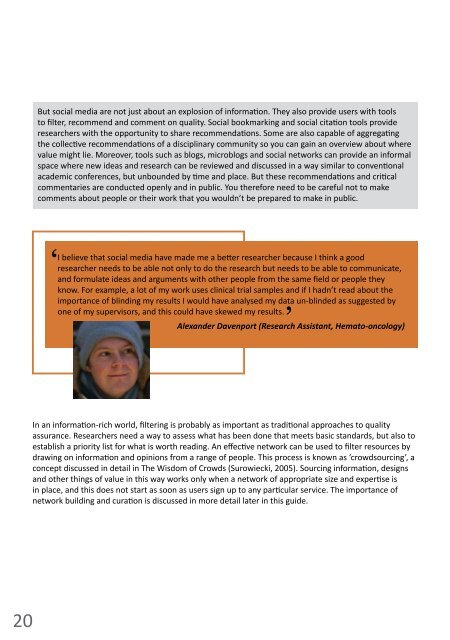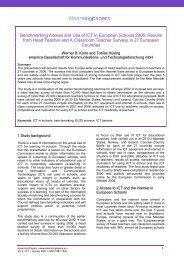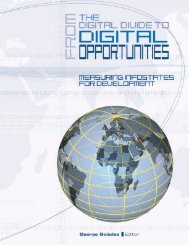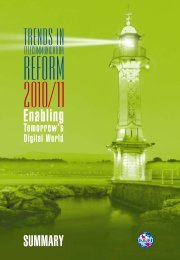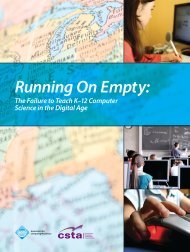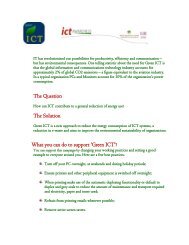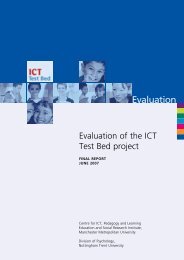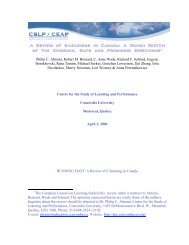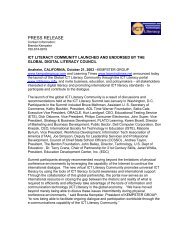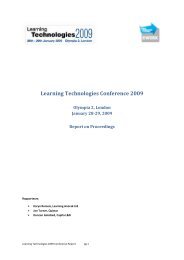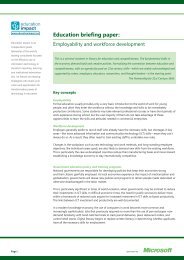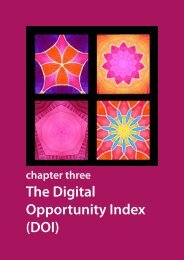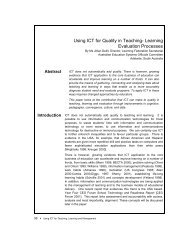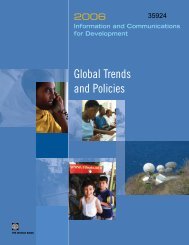Social Media - A guide for researchers - ICT Digital Literacy
Social Media - A guide for researchers - ICT Digital Literacy
Social Media - A guide for researchers - ICT Digital Literacy
You also want an ePaper? Increase the reach of your titles
YUMPU automatically turns print PDFs into web optimized ePapers that Google loves.
But social media are not just about an explosion of in<strong>for</strong>mation. They also provide users with tools<br />
to filter, recommend and comment on quality. <strong>Social</strong> bookmarking and social citation tools provide<br />
<strong>researchers</strong> with the opportunity to share recommendations. Some are also capable of aggregating<br />
the collective recommendations of a disciplinary community so you can gain an overview about where<br />
value might lie. Moreover, tools such as blogs, microblogs and social networks can provide an in<strong>for</strong>mal<br />
space where new ideas and research can be reviewed and discussed in a way similar to conventional<br />
academic conferences, but unbounded by time and place. But these recommendations and critical<br />
commentaries are conducted openly and in public. You there<strong>for</strong>e need to be careful not to make<br />
comments about people or their work that you wouldn’t be prepared to make in public.<br />
‘<br />
I believe that social media have made me a better researcher because I think a good<br />
researcher needs to be able not only to do the research but needs to be able to communicate,<br />
and <strong>for</strong>mulate ideas and arguments with other people from the same field or people they<br />
know. For example, a lot of my work uses clinical trial samples and if I hadn’t read about the<br />
importance of blinding my results I would have analysed my data un-blinded as suggested by<br />
one of my supervisors, and this could have skewed my results.<br />
Alexander Davenport (Research Assistant, Hemato-oncology)<br />
‘<br />
In an in<strong>for</strong>mation-rich world, filtering is probably as important as traditional approaches to quality<br />
assurance. Researchers need a way to assess what has been done that meets basic standards, but also to<br />
establish a priority list <strong>for</strong> what is worth reading. An effective network can be used to filter resources by<br />
drawing on in<strong>for</strong>mation and opinions from a range of people. This process is known as ‘crowdsourcing’, a<br />
concept discussed in detail in The Wisdom of Crowds (Surowiecki, 2005). Sourcing in<strong>for</strong>mation, designs<br />
and other things of value in this way works only when a network of appropriate size and expertise is<br />
in place, and this does not start as soon as users sign up to any particular service. The importance of<br />
network building and curation is discussed in more detail later in this <strong>guide</strong>.<br />
20


